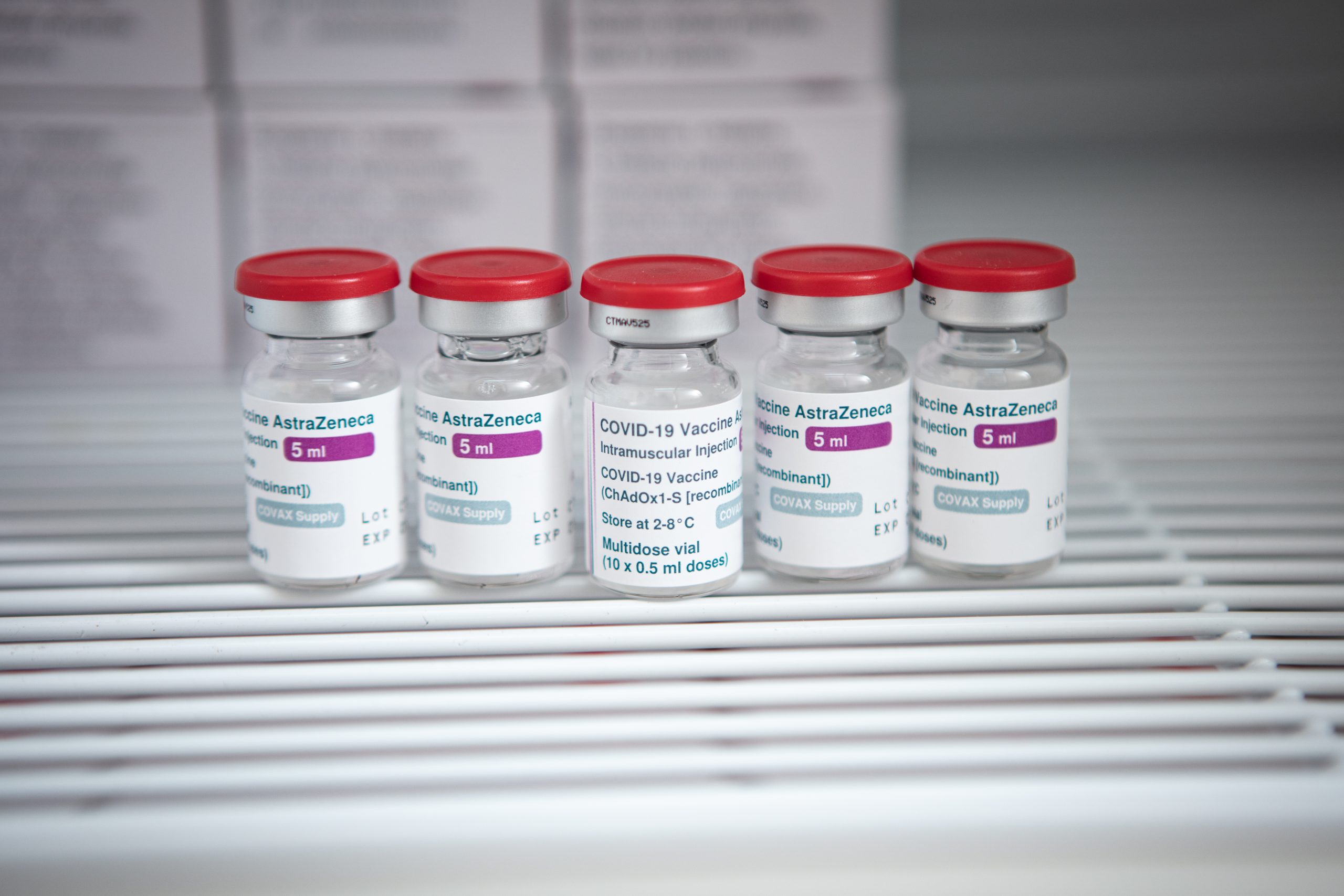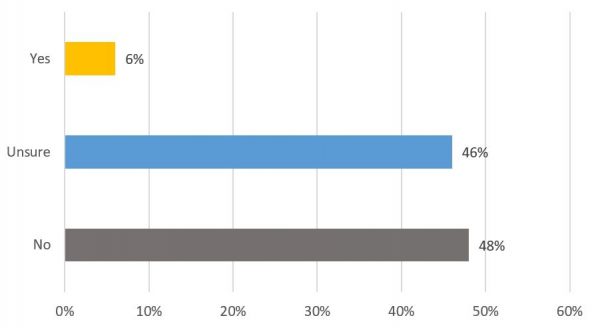
Vaccine hesitancy in PNG: results from a survey
By Rohan Fox
24 June 2021
Under the partnership between the Crawford School of Public Policy and the School of Business and Public Policy at the University of Papua New Guinea, a number of ANU Crawford School lecturers teach UPNG undergraduates and graduates in economics and public policy. Due to COVID-19, a significant part of the teaching last semester was online.
In May 2021, towards the end of the semester, we surveyed some students on their experiences of online learning. Given the COVID-19 vaccine rollout that started around the same time, we also took the opportunity to ask them about their attitudes to COVID-19 vaccination. A total of 281 students, mainly undergraduates, responded to the survey: 56% men and 44% women. Around 220 respondents were in their first year of studies, and the rest were undergraduates from later years.
A recent online survey from PNG’s The National newspaper found that 77% of respondents did not want to be vaccinated. This suggests that PNG has a high level of vaccine hesitancy. In Australia, at the end of last year (before vaccines had been approved for use), 73% of survey respondents agreed or strongly agreed that they would get the vaccine if it became available and was recommended for them. A number of large-scale surveys across Africa found that at least 59% of respondents would accept a vaccine if it became available. For example, in one survey, at the end of 2020, an average of 62% of respondents across six countries said they would “definitely” or “probably” take the COVID-19 vaccine as soon as possible. Younger people (aged 15–25) were only slightly less positive: with an average of 59% in the two positive categories.
In contrast to The National’s survey, our survey gave respondents the option to choose “unsure” in their opinion on vaccine. It also asked specifically about the AstraZeneca vaccine. This addition resulted in a still high, but far smaller, number who said they would not want to be vaccinated – 48% compared to 77%. A much smaller number of respondents (6% vs 23%) said that they wanted to take the vaccine. 46% stated that they were unsure whether or not they would take the vaccine.
Responses to the question “would you like to be vaccinated with the Oxford AstraZeneca vaccine?”

The survey also asked respondents to provide a brief free-form reason for their response. Some were brief, and others were highly detailed. The most common reason for wanting to take the vaccine was the improved safety that vaccination provided. The biggest reason for being unsure about vaccination was a lack of requisite information to make a proper judgement. Examples of the free-form responses from respondents unsure about taking the vaccine include:
[In] regards to this question, the Government of Papua New Guinea have not made more awareness on this COVID- 19 vaccine so most of us are confused about it.
And:
There should be some proper awareness of the vaccine so that we will knowingly vaccinate ourselves.
Negative rumours and debate on social media were the most common reasons given by those who do not want to take the vaccine. Misinformation was also evident in a few responses. The link between those who knew someone who had been vaccinated and being more likely to want to be vaccinated was not statistically significant.
Access is also a key issue. Even if everyone in PNG wanted to be vaccinated, at this stage there are not enough vaccinations available. One respondent noted that they were unsure of taking the vaccine as a young person:
I feel like there are people who are more desperate or need it more than my relatively introverted, hygienic, self-isolating self: front line workers, elderly, etc.
Our data shows that many minds are not made up on the issue of vaccination. Many respondents noted the need for further awareness and information on COVID-19 and vaccinations. These responses suggest that authorities need to do more to ensure that accurate and trustworthy information reaches these students and, in all likelihood, the public at large in PNG. In the next blog, I look into which sources of information respondents trust most.
Author notes
Sincere thanks to the respondents who took part in this survey.
The World Health Organization (WHO) endorses a number of COVID-19 vaccines, including the Oxford AstraZeneca vaccine available in PNG, as safe and effective at protecting people from the serious risks of COVID-19. According to Oxford University, as of June 2021, 2.6 billion people have been vaccinated against COVID-19. The risk of vaccination is classified by the WHO as very low.
The following are some reliable sources of information on COVID-19 and vaccine research, data and risks:
- COVID-19 vaccine safety (World Health Organization information page)
- The Oxford AstraZeneca vaccine: what you need to know (World Health Organization information page)
- How many people have been vaccinated for COVID-19 globally (data from Oxford University)
- Resources for journalists covering COVID-19 and vaccines (Harvard’s Shorenstein Center on Media, Politics and Public Policy)
- Global trends in COVID-19 (data from Johns Hopkins University)
This is the first blog in a the #vaccine hesitancy and trust series. You can read the second blog here.
Correction 25 June 2021: In May 2021, towards the end of the semester, we surveyed some students on their experiences of online learning.
Disclosure
This research was undertaken with the support of the ANU-UPNG Partnership, an initiative of the PNG-Australia Partnership. The views represent those of the author only.
About the author/s
Rohan Fox
Rohan Fox was a Research Officer at the Development Policy Centre. He lectured in the economics program at the University of Papua New Guinea in 2015, 2016 and 2020.
